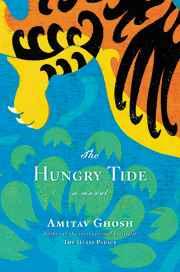
Both debate issues of belonging and cultural affiliation from the vantage point of the returning woman protagonist, while locating her thinking in relation to various local knowledges. 2 Piya and Anil themselves are sharply individualized figures, but on one level they can be seen as metonyms for the hermeneutic problems that arise when, despite the cliché that globalization is shrinking the world, we try to read across cultures and again this can be related to the problems addressed by each of the novels as a whole. 2 Ghosh does talk explicitly about climate change in the Sundarbans in a 2005 interview for the UN Ch (.)ģ Beyond this, the specific concerns of the two novels diverge, but both also engage with human rights issues: Anil’s Ghost in a very obvious way-Anil is a forensic anthropologist, who returns to Sri Lanka to investigate alleged abuses of human rights for a Geneva-based organization-while The Hungry Tide dramatizes situations that relate to issues of land rights, conservation and apparent climate change.So, from one point of view, both novels can be read as self-referential reflections on the kind of cross - cultural brokerage involved in writing ‘out of place’.


Arguably, the manner in which Anil’s Ghost and The Hungry Tide explore the dynamics of space refracts back on the problematics that the two novelists address as a consequence of setting their novels in specific South Asian locales-Sri Lanka in Anil’s Ghost and West Bengal in The Hungry Tide- while writing for a broader international audience. I shall be looking particularly at three interlinked issues: ways in which characters in the novels are seen, or see themselves, as in or out of place possible sites of collaboration between diasporic and local characters and alternative conceptions of place that are developed both by the characters and, implicitly at least, by the novels as a whole. 1 This essay is concerned with ways in which space is configured in fiction, and as case-studies I am taking two novels, Michael Ondaatje’s Anil’s Ghost (2000) and Amitav Ghosh’s The Hungry Tide (2004), which engage with some of the debates surrounding cosmopolitanism and supposed rootedness in an increasingly globalized world.


 0 kommentar(er)
0 kommentar(er)
